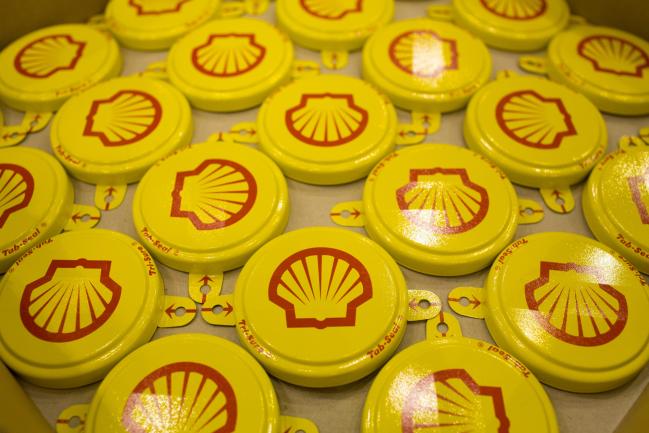(Bloomberg) -- Royal Dutch Shell (LON:RDSa) Plc rode the surge in oil prices to even greater heights, posting a profit not seen since the days of $100 a barrel. Investors were displeased that the company didn’t take them along for the ride.
While French rival Total SA (PA:TOTF) has started disbursing the rewards of rising energy prices -- with higher dividends and share buybacks -- Shell has other priorities, at least for now. Chief Financial Officer Jessica Uhl declined to say when her planned $25 billion to $30 billion stock-repurchase program would start, telling reporters on a call that she wanted to focus on debt reduction first.
There are two big reasons for the company’s caution. First, it still has to pay off the acquisition of BG Group Plc in 2016, a deal that’s turbo charged natural gas earnings but left Shell heavily indebted. Second, its cash flow -- little changed from a year earlier despite higher oil prices -- “may not necessarily support” the planned buybacks, according to RBC Capital Markets.
Earnings at Europe’s largest energy company vaulted ahead of the upswing in crude to an average of $67 in the first quarter, reaping the benefits of years of cost cuts. Adjusted net income was $5.32 billion last quarter, compared with $3.75 billion a year earlier. That surpassed analysts expectations of $5.2 billion, rising to a level only consistently seen when oil traded for more than $100.
Total and Statoil (OL:STL) ASA also posted the best earnings in years this week, with Total pumping a record amount of oil and gas in the first quarter. Shares of the French company rose in response to its results, the opposite of the reaction to Shell.
Shell dropped as much as 2.8 percent as analysts raised concerns about flat cash flow from operations, which was $9.43 billion in the first three months of 2018.
“The only negative here is the conversion of those earnings into cash flow,” Oswald Clint, an analyst at Bernstein Research, said by telephone. “It’s a little bit lighter than what I was expecting.”
Shell’s free cash flow was sufficient to fund the company’s cash dividends and interest payments in the first quarter, which wasn’t always the case during the oil-price slump. Like its peers, Shell was forced to make some payments to investors in shares during the downturn, known as a scrip dividend, while also borrowing to fund the cash portion of the payout.
Those newly created shares diluted the holdings of some investors, who have maintained a sharp focus on the timing of the buybacks required to offset the impact. Shell wasn’t able to offer a clear answer on what could trigger the repurchases.
“It’s an integrated decision. I’ve provided enough insight,” CFO Uhl told reporters in response to several questions about buybacks.
That situation should change. Barclays (LON:BARC) analysts said in a note that they expect Shell to begin the program in the second half.
“We would expect cash flow growth through the year supported by the current macro environment,” said Biraj Borkhataria, an analyst at RBC Capital Markets. “Royal Dutch Shell remains one of our preferred super-majors.”
(A previous version of this story corrected the share price reaction in penultimate paragraph.)
